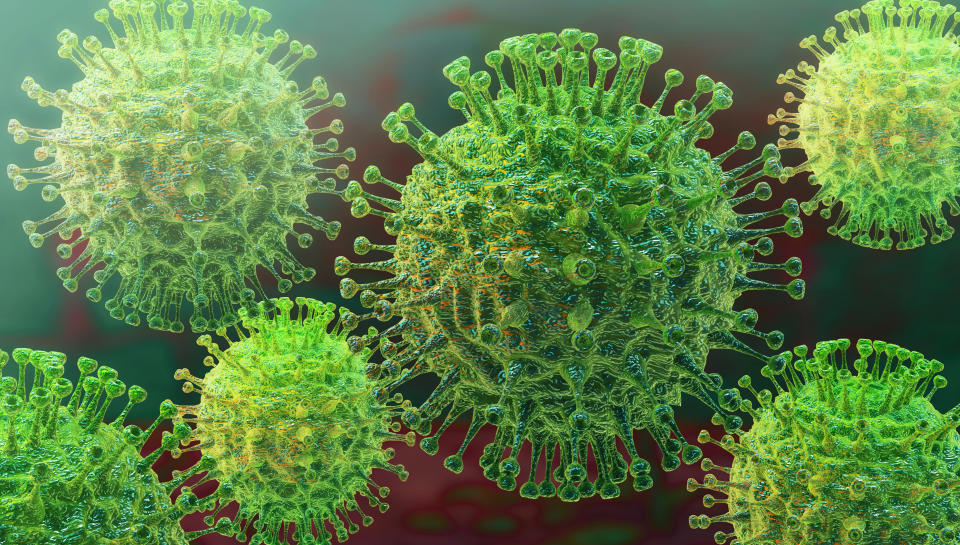What Canadians should know about the mysterious emerging virus in China
The United States has confirmed its first case of a mystery virus, which has emerged in China, with 291 confirmed cases and nearly 2,000 more anticipated.
Officials from the U.S. Centers for Disease Control and Prevention began screening passengers for symptoms at New York City's Kennedy airport and the Los Angeles and San Francisco airports. On Tuesday, afternoon they announced that an infected traveller arrived in Seattle on a flight from China.
Screenings questions were implemented at Canadian airports in an effort to limit the transmission of the virus in Canada. The Public Health Agency of Canada says additional measures will include messaging on arrivals screens at the Toronto, Montreal and Vancouver international airports reminding travellers from Wuhan to inform a border service officer if they are experiencing flu-like symptoms. There will also be an additional health screening question added to electronic kiosks.
While the majority of cases of the coronavirus — called so because the virus resembles a crown — have been found in the city of Wuhan, a number of cases have also been confirmed in Beijing, Shanghai and Shenzhen. Six people have died from the respiratory illness, which has also been reported in Japan, South Korea Thailand and the United States.
Here’s what Canadians should know about this new virus.
Systems are in place to target outbreaks
Eleanor Fish is a professor in the department of Immunology at the University of Toronto. She says that when SARS hit Canada in the early 2000s, it was contained and shut down in the hospitals. This experience has prompted the country’s health system to put a plan in place for any type of outbreak.
“People should be reassured that this isn’t going to be a flu pandemic,” she tells Yahoo Canada. “It’s highly unlikely. Hospitals are prepared for respiratory outbreaks...systems are in place to isolate people immediately. ”
Isaac Bogoch, an infectious diseases specialist at Toronto General Hospital, published a peer-review paper on the exportation of this novel coronavirus from Wuhan before cases had been reported outside
the country. The study looked at travel patterns, both direct and indirect, through commercial airlines from Wuhan to different places in the world.

“We found the greatest risk for disease exportation from Wuhan was mostly for larger, urban centres within Asia,” he says. “Places like Bangkok, Tokyo, Seoul and Hong Kong.”
Since the piece was published, there’s been confirmation of cases in some of these cities.
He also affirms that Canadians shouldn’t be anxious about the spread of this illness. Bogoch says health officials in Canada are receiving many messages from national, provincial and local public health authorities with information like when to suspect cases, how to obtain appropriate samples for testing and how to isolate patients who are suspected to have the coronavirus.
“There’s increasing information to health care providers on how to manage potential cases of this,” he says.
What is the virus emerging in China?
The coronavirus that is spreading through China is a SARS-like virus. The belief amongst health officials is that it’s likely being spread through human-to-human transmission. However, it might be transmitted by other species. In China, the density of the population in proximity to animals is very high.
“If it is a cross-species jump, those kinds of things are unlikely to happen in Canada, because urban folks don’t live too close to pigs,” Fish says. “They’re highly likely to happen in countries where people live in close proximity to open markets.”
There isn’t a vaccine for this virus
There isn’t an antiviral or vaccine to target the current coronavirus that’s spreading through China. So if someone were to turn up in a Canadian hospital with symptoms, they would receive supportive care to target respiratory issues, like getting put on nasal prongs to oxygenate the blood.
“The virus itself causes an inflammatory response so the best thing to do is target the virus so you don’t get all that sequela from that virus infection,” says Fish.
When targeted by a virus infection, the body’s immune system produces something called interferon. Many viruses, including coronaviruses, encode in their genomes factors that block the interferon response. So when SARS spread to Toronto, doctors treated patients with interferon, which resulted in positive outcomes. Fish hopes that the same protocol will be put in place if the current virus spreads internationally.
“If there are severely ill hospitalized patients, why aren’t we thinking about interferon again,” she says.
Be aware if travelling to China
Canadians who are travelling to China should be acutely aware of the regions where the coronavirus is being reported. It would also be useful to inform the Canadian embassy if you’ll be travelling to affected regions, so that if something were to happen, they will know how to reach you.
Finally, be aware of symptoms. These include fever, coughing, shortness of breath and a feeling of tightness in the chest.
“There are processes in place and plans that have been developed as a consequence of SARS,” says Fish. “I think we’re well prepared. Should there be an outbreak, this would kick into gear.”
With files from The Canadian Press

